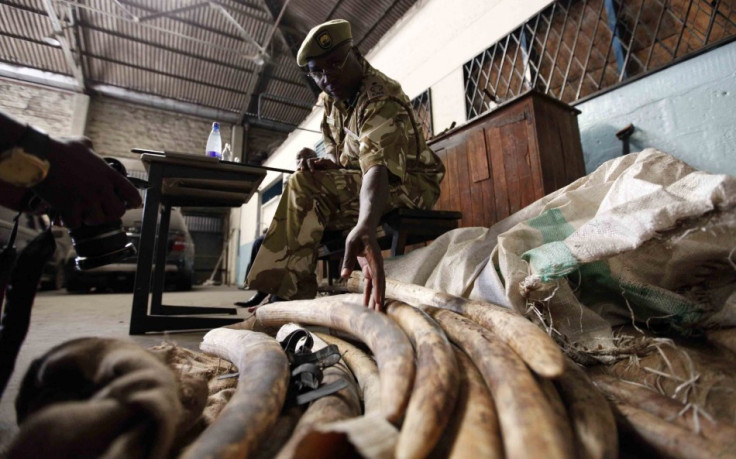EU hopes to save African wildlife with ban on raw ivory exports to stem illegal trade
2016 saw record seizures of ivory in the UK, Germany, France and Austria.

The European Commission is set to ban raw ivory exports to stem the ivory trade from 1 July, according to reports.
International ivory trade has been largely banned since 1990, but European Union (EU) member states can currently export raw ivory – whole tusks, ivory chunks or scraps – or worked by carving, polishing or engraving but only ivory acquired before 1990 and with a certificate. The Europe sells more raw and carved ivory to the world than anywhere else.
However, some internal EU certificates are reportedly falsified or forged and traffickers have allegedly infiltrated this legal trade. Those documents can be used as re-export certificate applications from EU states to feed an insatiable appetite for elephant tusks in east Asian countries, particularly China and Hong Kong.
In a draft EU guidance document, the commission outlined a possible 1 July date for an export ban on raw ivory to "make sure that tusks of legal origin are not mixed with illegal ivory", according to the Guardian. Exports of worked ivory products, such as ivory statues, are expected to remain possible for member states.
"We will not be able to protect elephants as long as this trade persists, remains legal, in one form or another," Liberal Democrat MEP Catherine Bearder, who proposes a total ban on the ivory trade, is quoted as saying by RFI.
The official data for 2016 is yet to be published, but in just four seizures last year a record 2,972kg (6,552lb) of ivory was confiscated across Europe in the UK, Germany, France and Austria. This is compared to some 550kg of ivory seized across Europe in 2015.
NGO Save the Elephants estimates that, between 2010 and 2014, the wholesale price of raw ivory in China tripled, reaching $2,100/kg, meaning that across Africa, an elephant is killed every 14 seconds.
By the end of 2015, the number of African rhinoceros killed by poachers had increased for the sixth year in a row, according to the Union for Conservation of Nature (IUCN) Species Survival Commission's African Rhino Specialist Group (AfRSG).
Wildlife trafficking is one of the most lucrative criminal activities in the world, generating between £6.7bn ($8.4bn) and £16.8bn per year.
© Copyright IBTimes 2025. All rights reserved.






















